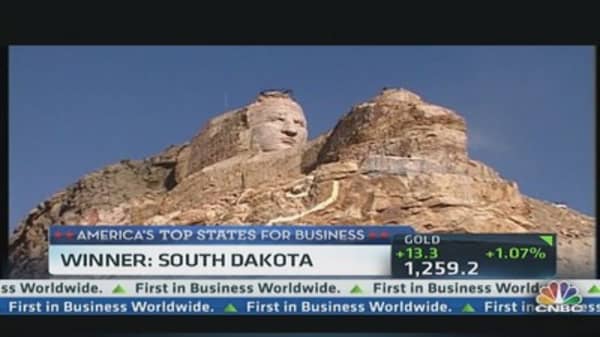Portland, the largest city in Oregon, was recently ranked fifth on Bloomberg BusinessWeek's best cities in America list. Why? The city—and its state—is known for its laid-back living with a great deal of support for creation and innovation. And businesses have taken note with lofty aspirations for continuous gains in education, health care and sustainability.
Our economy was originally built by Oregonians who relied on the land for their livelihood, and much of the community continues to depend heavily on natural resource economies like farming, forestry and fishing. After high-tech manufacturing, natural resources remain among Oregon's leading industries.
Oregon has also developed a reputation for being innovative in important areas. For instance, the state's workers' compensation reforms made years ago are appearing around the country, and the state remains a leader in this area. According to the state's Department of Consumer and Business Services, Oregon has the 13th-lowest premium rate and is 16 percent below the median for all states and Washington, D.C., based on premium rates effective Jan. 1, 2012.
Oregon rates are highly competitive, especially compared with our neighbors: California's rates are the third-highest in the nation, while Washington ranks 13th and Idaho comes in at 19th.
Oregon's economic innovation is also apparent in the area of affordable and clean energy. In 2012, the American Council for an Energy-Efficient Economy ranked the state fourth on its energy-efficient scorecard, citing strong policies and results.
In addition to a strict building energy code, the state participates in broad initiatives to boost energy efficiency for consumers and industries. Plus, there's a sincere interest in exploring alternative energy options, as evidenced by 21 hydroelectric power plants within the state and our record-breaking use of wind farms.
Efforts to date have resulted in a relatively low carbon footprint for the state, and reliable and competitively priced energy for its industries.
(Read more: Top States: Did yours make the cut? )
Our business climate also boasts a highly educated workforce. In the 2006-2010 American Community Survey, Oregon slightly surpassed the national average in bachelor's and advanced degrees: 28.8 percent of the 25 and older Oregon population held such degrees, as compared with 28.2 percent for the nation.
The Oregon legislature has prioritized the coordination of all levels of education so more Oregonians graduate from high school and earn career certification or college degrees. The vision is to achieve a 40-40-20 mix, with 40 percent of the population earning a four-year degree or better, 40 percent earning an associate's degree or technical credential, and 20 percent a high school diploma or the equivalent.
All this being said, a number of hurdles within the Oregon business environment work to our disadvantage. Among them, Oregon's tax structure has gained a reputation for being unfriendly to business, and our property taxes are also among the highest in the country. The state frequently ranks as one of the worst income tax states for top earners (>$250,000/year), and our capital gains are famously unfriendly to investors and small businesses alike.
(Read more: Biggest losers in 2013 Top States rankings )




